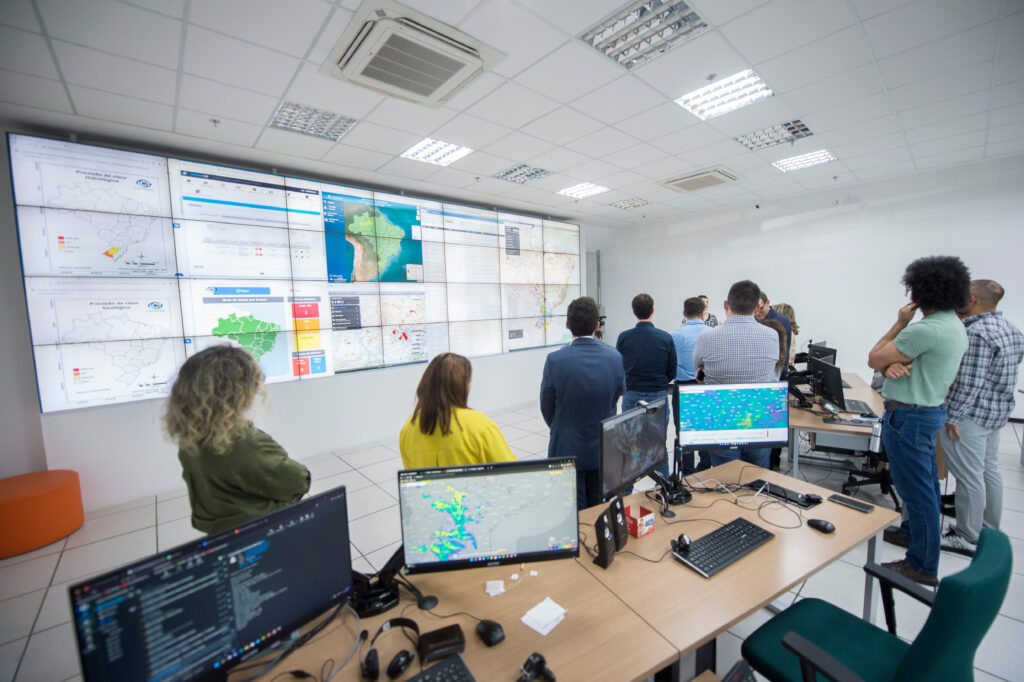On October 24 and 25, IRI Brazil organized the first scientific visit to the National Center for Monitoring and Alerting of Natural Disasters (CEMADEN) and the National Institute for Space Research (INPE) specifically designed for public authorities working within the Judiciary of the State of Acre and leaders from the State Audit Courts of Acre, Amazonas, and Rondônia. The primary objective of the visit was to deepen awareness and provide training to these leaders, enabling them to develop effective strategies for climate change mitigation and adaptation, as well as to combat deforestation in tropical forests. Participants included: Rita de Cássia Nogueira Lima – Attorney General for Administrative and Institutional Affairs of the Public Ministry of Acre – MPE/AC, Cosmo Lima de Souza – Attorney General of the MPE/AC, Lucas Nonato da Silva Araújo – Substitute Prosecutor of the MPE/AC, José Ulisses Melo de Lima – Public Defender of Acre, José Ribamar Trindade de Oliveira – President of the Court of Auditors of the State of Acre – TCE/AC, Dulcinéia Benício de Araújo, Correctoral Counselor of the TCE/AC, Sérgio Cunha Mendonça- Attorney of the Public Ministry of Accounts at the TCE/AC, Iara Guedes Bezerra- Planning Advisor at the TCE/AC, Francisco Júnior Ferreira da Silva – Substitute Counselor of the TCE/RO, Felipe Mottin Pereira de Paula – General Secretary of Planning at TCE/RO, Luís Fernando Bueno – Technical Advisor at TCE/RO and Sérgio Meleiro – Director of Environmental Control and Audit at TCE/AM. The initial evaluation of the event was very positive. The institutions present formulated several proposals for integrated actions, such as: i) working with the National Council of Justice – CNJ to include climate change and forests in the curriculum of the Judiciary Schools so that judges can better master these topics, and thus, be able to exercise their legal duties, especially in socio-environmental disputes, with greater knowledge, control and security; ii) create a protocol so that State Audit Courts and Public Ministries can monitor the responses given by public leaders to disaster alerts issued by CEMADEN and; iii) acquisition of rain gauges by the Audit Courts to expand CEMADEN’s data collection network, as a way of contributing to the improvement of the system for issuing climate disaster warnings.


